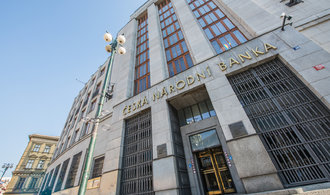According to analysts, the slowdown in interest-bearing financing of uncertain business contributed to the fact that the average interest rate on corporate loans fell from a maximum of 3.37 percent in February this year to 1.5 percent at the end of the February holidays. This is the lowest interest rate at least in the last sixteen years for which the CNB publishes these statistics. At the same time, large loans fell the most.
“Banks have responded to the decline in risk-free rates and the increase in risk. They lend to clients with a lower risk cheaper and to lend to clients with a higher risk either with a guarantee from support programs or not at all, “says Petr Kříž, a banking expert at the consulting company PwC. According to him, such low interest rates on loans reflected the fact that riskier companies that borrow railways simply did not get in the banks.
As CNB statistics show, the average rate on larger corporate loans of over CZK 30 million fell to a record low of 1.23 percent at the end of August, from 3.22 percent in February.
–
–
“Reliable clients usually borrow for one and a half percent,” says Libor Winkler, a financier and head of the RSJ investment company. Interest on larger loans has fallen by almost two-thirds since the beginning of the pandemic.
“Banks are not afraid to lend large corporate loans at a very attractive price,” confirms Partners analyst Lucie Drásalová. For example, in the case of smaller corporate loans up to CZK 7.5 million, the average rate fell from this year’s maximum of 4.61 to 3.66 percent, ie by less than a fifth.
“Especially in the case of creditworthy clients and sectors that have not been so severely affected by the current pandemic, the level of interest rates is being pushed down by growing competition,” explains banking expert Deloitte Roman Lux. The decline in interest rates on loans reflected the spring easing of the CNB’s monetary policy, which gradually reduced the key interest rate from 2.25 in March to 0.25 percent in May.

–
–
“The decline in interest rates on corporate loans may to some extent be related to state-guaranteed loans due to the pandemic,” recalls Cyrrus analyst Tomáš Pfeiler. Until the end of August, state guarantees played a role in the case of loans totaling almost nineteen billion crowns, which, however, corresponds only to the roughly two-week standard of Czech companies’ demand for credit.
 Average interest on corporate loans
Average interest on corporate loans
“Banks are interested in cooperating especially with reliable and proven clients. I would say that their caution has increased compared to the period before the covid, “says Otto Daněk, head of the engineering company Atas elektromotory. The banks themselves do not comment on the trend of rates, mostly with reference to the specifics of individual clients.
“In the case of corporate loans, the interest rate is set individually. At the same time, it is true that for each applicant for financing, we primarily assess its ability to meet its obligations to the bank, ”says Komerční banka spokesman Michal Teubner. In general, at lower rates, according to financiers, is a long-term excess of bank liquidity combined with a decline in rates.
“Last but not least, it is also a consequence of government coronavirus support programs, which allow companies to defer payments or maintain employees,” says Patrik Pražák, head of Česká spořitelna’s corporate clientele. “It is possible that after the end of these government programs, the price of money, and thus also the interest rates on corporate loans, will rise during the autumn,” adds Pražák.
– .


